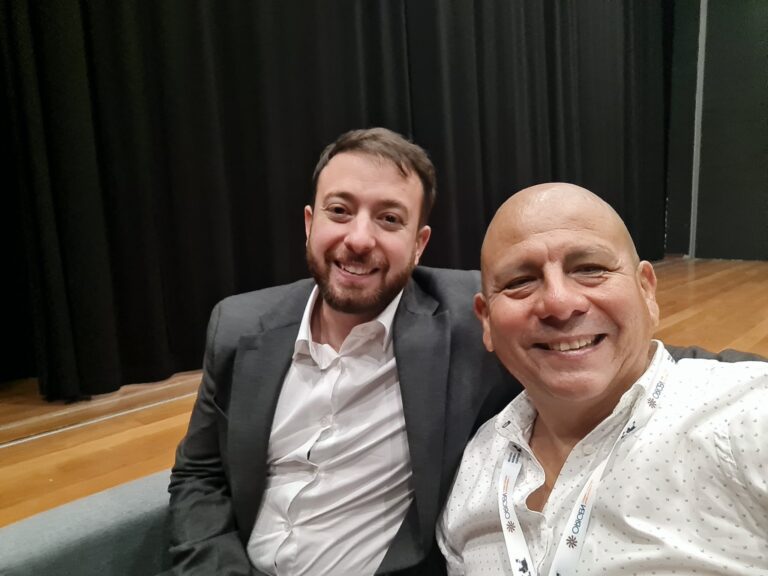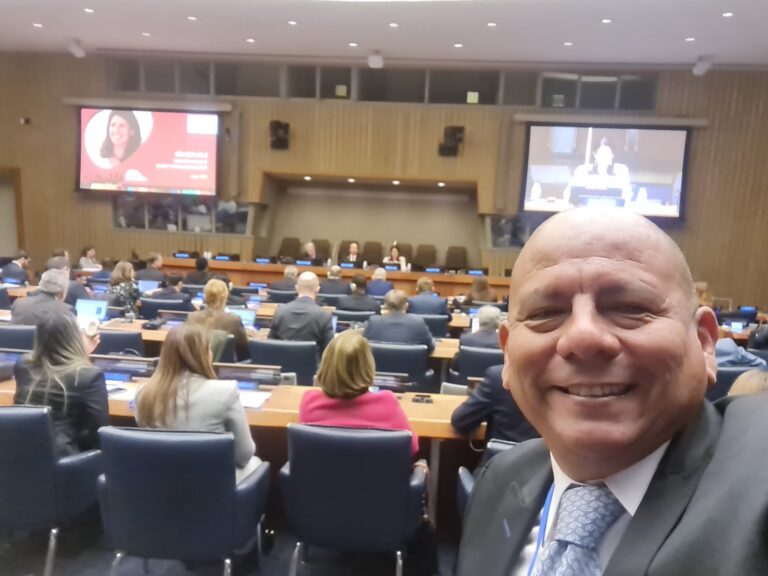Abortion is illegal throughout Latin America. The only countries which allow it are Cuba and — because it is under U.S. law — Puerto Rico. But the death peddlers, to use Fr. Marx’s phrase, are daily becoming more aggressive. To combat this growing threat, PRI has opened an office in Lima, Peru, headed by the redoubtable Carlos Polo, whose words follow:
Back in 1986, a friend gave me some pamphlets written by Father Paul Marx. I was particularly struck by one called “From Contraception to Abortion,” in which the famous monk showed how the unnatural frustration of one’s fertility through contraception always and inevitably led to abortion. I felt a strong call to undertake pro-life work.
IPPF Invades Peru
At the time I was studying anthropology at the Peruvian Catholic University while working with a social research organization. In my spare time I prepared a report on the state of contraception and abortion in Peru that I was invited to present at one of Father Marx’s Latin American conferences. That same year, the International Planned Parenthood Federation (IPPF) branch in Peru organized a National Family Planning Congress. I attended as an undercover observer, much as Father Marx himself had done years before, and later exposed their efforts to overturn Peruvian laws.
To combat the efforts of IPPF and others, a group of us formed an organization of university students called “Por la Vida” (“For Life”). Today, many of this group — respected professionals in business and academe — are still involved in the pro-life, pro-family movement, in fact constituting its core leadership. I myself went into business, but remained active on the pro-life front.
For the next few years, Father Marx’s HLI provided our group and other Peruvian pro-lifers with current scientific information, lots of leaflets, and audiovisual material. When HLI support was terminated, we turned to Alianza Latinoamericana para la Familia (ALAFA), in English “the Latin American Alliance for the Family,” which enabled us to continue our work.
Activity Increases
The nineties were years of intense activity. Bishop Luis Bambarén, head of the Peruvian Bishop’s conference, invited me to be a member of the Episcopal Commission on the Family. One offshoot of this effort was a pro-life committee, formed to work specifically on the issues I felt so strongly about. I devoted all of my free time to these efforts.
In 2000 I met Carlos Beltramo, who encouraged me to do pro-life work full-time. Christine de Vollmer, the head of ALAFA, hired me to promote the “Learning to Cherish” program, an educational program for teenagers with a great emphasis on chastity.
But I could not ignore the growing danger of the abortion movement in Peru. Pro-abortion, feminist NGOs, supported by USAID and UNFPA funds, were infiltrating the government. In 2003 Steve Mosher invited me to become a consultant to PRI in connection with the forced sterilization program of the Fujimori government. During my investigation, I came across other evidence of population control abuses carried out in my country with USAID funds, I reported these abuses to sympathetic congressmen and government officials, and asked them to take action. The battle was started and continues today.
I attended the Third International Congress of the Family in Mexico City in April of this year on a PRI scholarship. It was there that Steve asked me to head a new PRI effort in Latin America. “We need to work closely with pro-life leaders and organizations to keep abortion out of Latin America,” he told me. “I’d like you to head this effort.”
PRI Office in Lima Opens
We opened a Population Research Institute office in Lima shortly thereafter to coordinate pro-life efforts throughout the region. I know many of the national pro-life leaders, and am meeting more all the time, I want to share our experience in Latin America, where we have to date been successful in defeating the pro-abortionists, with the help of the pro-life family worldwide.
We are already publishing a Spanish version of the PRI Weekly Briefing, and we will be helping Population Research Institute and its many affiliates around the world to keep abreast of developments within the region.
We are also developing a PRI Spanish language web site with up-to-date scientific information about pro-life issues. I recently sent PRI’s excellent report on the morning-after pill to pro-lifers throughout Latin America. This was used with great effect in Chile, where it led to the defeat of an effort by the Chilean Health Minister to distribute the morning-after pill over the counter.
Defending life and the family is very challenging work. To reach our goals we must work together as a team, and help one another, as PRI is helping in Latin America. In unity there is strength.
Carlos Polo is the director of PRI’s new Latin American office.
Peru Quick Facts
Population: 27,544,305 (July 2004 est.)
Age Structure: 0–14 years: 32.1% (male 4,496,146; female 4,340,580)
15–64 years: 62.8% (male 8,709,098; female 8,594,351)
65 years and over: 5.l % (male 660,734; female 743,396) (2004 est.)
Population Growth: 1.39% (2004 est.)
Birth Rate: 21.27 births/1,000 population (2004 est.)
Death Rate: 6.29 deaths/1,000 population (2004 est.)
Infant Mortality Rate: 32.95 deaths/l,000 live births
Total Fertility Rate: 2.61 children born/woman (2004 est.)
Life Expectancy: total population: 69.22 years
(at birth) male: 67.48 years
female: 71.03 years (2004 est.)
Religion: Roman Catholic 90%
Source: The World Factbook 2004 at www.cia.gov/cia/publications/factbook/geos/pe.html










